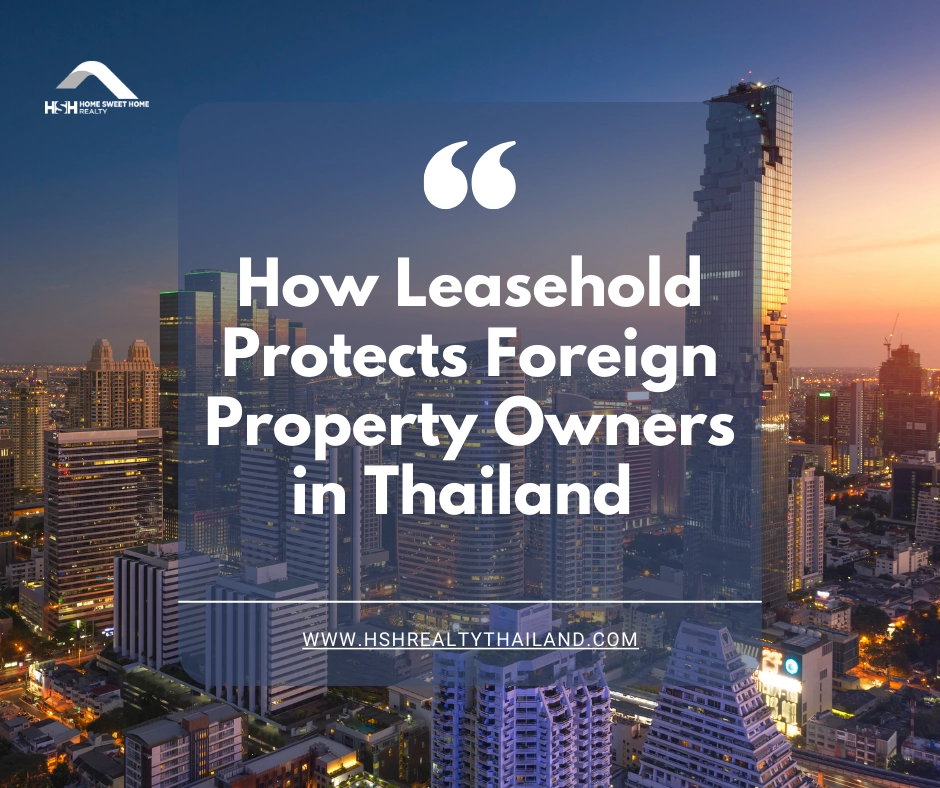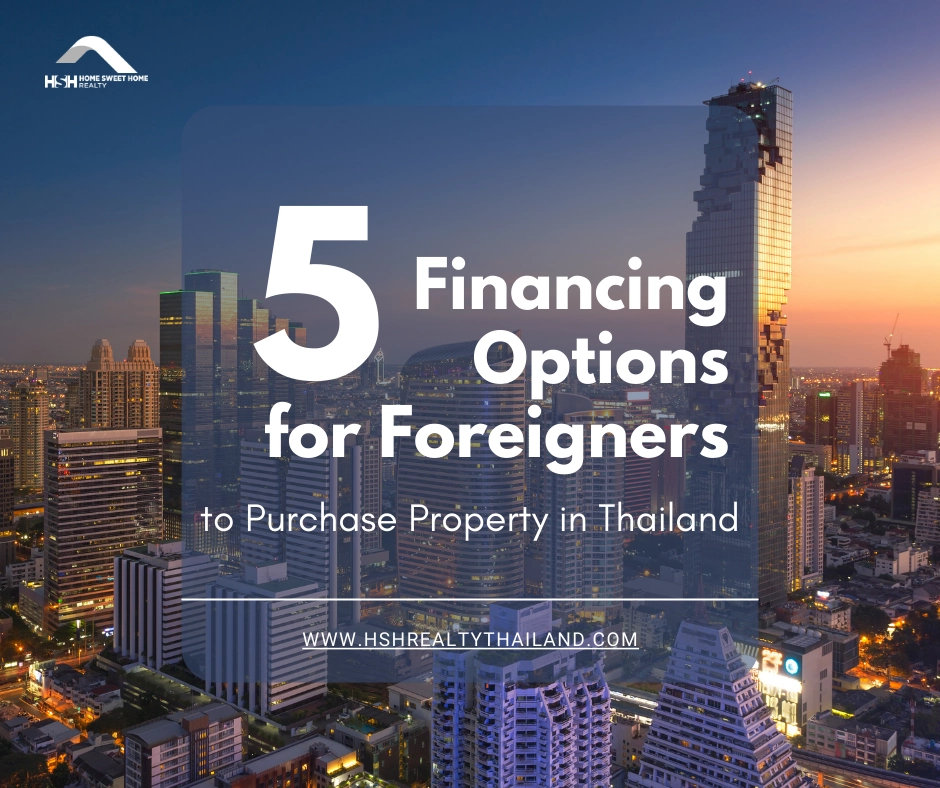
by HSHrealty
When it comes to owning property in Thailand, foreigners often face certain legal restrictions. However, one of the most effective and secure ways for foreigners to invest in Thai real estate is through a leasehold agreement. In this article, we'll explore what leasehold is, how it works, and why it's a great option for protecting the rights of foreign property owners in Thailand.
What is Leasehold?
Leasehold is a legal agreement where a foreigner can lease a property in Thailand for a fixed period, typically thirty years. Unlike freehold ownership, where the land and property are owned outright, a leasehold agreement grants the lessee the right to use the property for the duration of the lease term. Importantly, leasehold agreements can often be renewed, allowing for an extended period of use.
Legal Protections for Leaseholders
One of the key advantages of a leasehold agreement is the legal protection it provides. When the lease agreement is registered with the Land Department, it becomes legally binding and offers the leaseholder rights similar to those of ownership. These rights include the ability to use and rent the property during the lease term. Additionally, while the leaseholder cannot sell the underlying property itself, they may have the option to transfer or sell the remaining term of the lease to another party, subject to the terms of the lease agreement and with the consent of the property owner. This ensures that the leaseholder's investment is secure and protected under Thai law.
Benefits for Foreigners
For foreigners looking to invest in Thai real estate, leasehold offers a number of significant benefits. First and foremost, it allows foreigners to invest in property without needing a Thai partner, which is often required for freehold ownership. Additionally, leasehold agreements provide long-term security, allowing foreigners to enjoy their property without the uncertainties that can come with other arrangements.
Things to Consider
While leasehold is a secure option, there are some important considerations to keep in mind. One significant aspect is inheritance. By default, a leasehold agreement does not automatically pass on to the next generation or to the leaseholder’s children. However, it is possible to include a clause in the lease agreement that allows the lease to be transferred to heirs. This clause can ensure that the property can be passed on, but it's important to understand that this does not grant automatic legal protection. A legal process will still be required to transfer the lease to the next generation, making it crucial to seek legal advice when setting up such an arrangement.
Conclusion
In summary, leasehold is an excellent option for foreigners looking to own property in Thailand. It offers legal protection, long-term security, and the freedom to invest without the need for a Thai partner. If you're considering investing in Thai real estate, leasehold might be the perfect solution for you.
If you want to learn more or explore leasehold properties available in Thailand, feel free to reach out to us. We're here to help you navigate the process and find the perfect property for your needs.
Contact Us: +66-659-42-6988
Email: hshrealtythailand@gmail.com
WhatsApp: +66-659-42-6988



 hshrealtythailand@gmail.com
hshrealtythailand@gmail.com  +66-659-42-6988
+66-659-42-6988  +66-659-42-6988
+66-659-42-6988  Home Sweet Home Realty
Home Sweet Home Realty  @hshrealtythailand
@hshrealtythailand  @hshrealtythailand
@hshrealtythailand